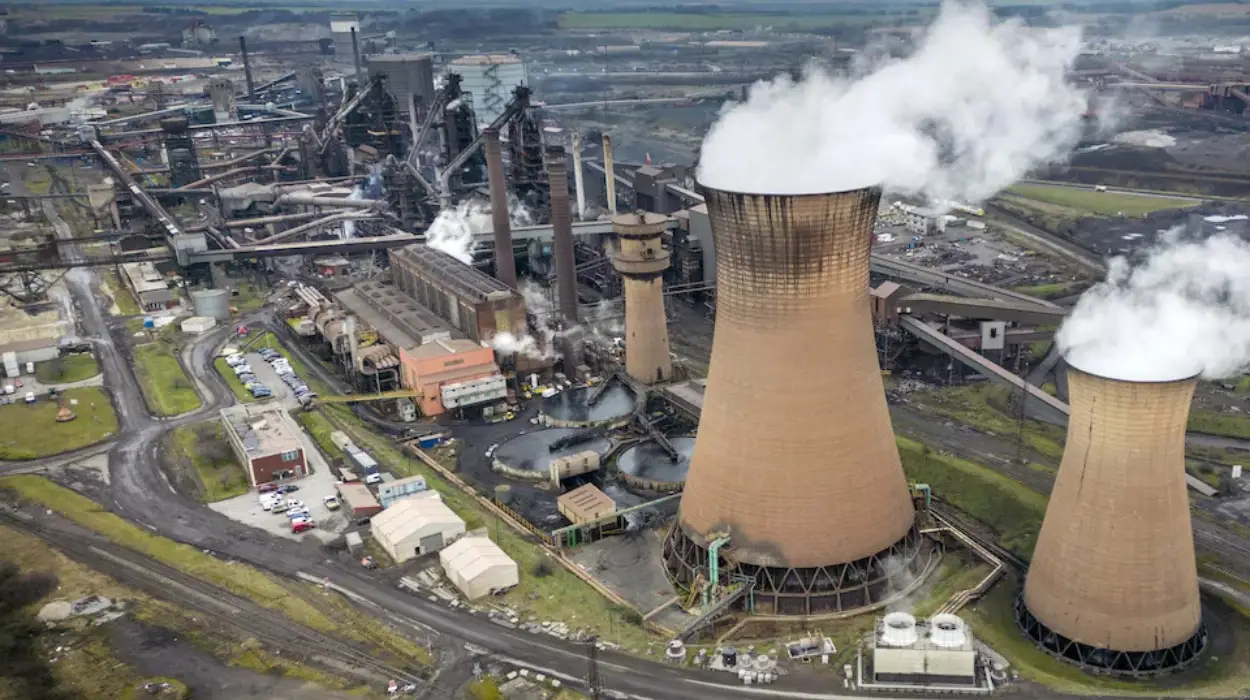UK (Parliament Politics Magazine) – Labour explores using the Civil Contingencies Act to control British Steel amid the potential closure of Scunthorpe furnaces, threatening UK steel production.
As reported by The Telegraph, with the Chinese owner’s threat to shut down, Britain considers using terror laws to nationalise its last steel blast furnaces.
What did Jonathan Reynolds propose on nationalising British Steel?
Business Secretary Jonathan Reynolds has proposed using the Civil Contingencies Act to quickly take control of British Steel.
According to insiders, he introduced the idea of using emergency powers to regain control of British Steel in discussions held last year.
On Friday, Mr Reynolds stated,
“I know this will be a deeply worrying time for staff and, while this is British Steel’s decision, we will continue working tirelessly to reach an agreement with the company’s owners to secure its future and protect taxpayers’ money. We’ve been clear there’s a bright future for steelmaking in the UK.”
He added,
“We’ve committed up to £2.5bn to rebuild the sector and will soon publish a plan for steel setting out how we can achieve a sustainable future for the workforce, industry and local communities.”
What role could the Civil Contingencies Act play in nationalising British Steel?
The Civil Contingencies Act, introduced in 2004, enables ministers to invoke special powers in crises like war, attacks by foreign nations, or terrorism.
Following the collapse of discussions with the government, Jingye, the Chinese owner of the Scunthorpe plant, has revealed plans to close both blast furnaces.
Reports suggest the company may start closing one blast furnace in the coming weeks, with a second following by June. Unions have raised concerns over the irreversible nature of these closures.
The government has only explored nationalisation when a firm becomes insolvent, but Jingye is not facing any financial difficulties.
Amid national security concerns over the potential loss of virgin steel production, Mr. Reynolds is reportedly exploring the use of the Civil Contingencies Act to prevent Jingye from shutting down the Scunthorpe blast furnaces.
Ministers could use this move to implement temporary laws for controlling British Steel without rushing a parliamentary bill, though a permanent one may follow.
The Civil Contingencies Act has never been used before, even during the COVID pandemic, and its invocation could threaten businesses and lead to a court battle with Jingye.
What did Whitehall insiders say about nationalising British Steel?
Whitehall officials have not dismissed the possibility of using the Civil Contingencies Act to nationalise, similar to its 2019 nationalisation.
A government source stated, “That will always be an option,” while clarifying that reaching a deal with Jingye is still the priority.
The “special situations” team is working closely with the Department for Business and Trade to formulate emergency plans.
How could the closure of Scunthorpe Steel affect Network Rail?
Network Rail, a major client of the company, revealed on Friday that it had been secretly stockpiling steel to mitigate the potential disruption in the supply chain.
At present, Network Rail, which oversees rail infrastructure, gets 95% of its steel from the Scunthorpe blast furnaces, with Europe providing the rest.
What did the Network Rail spokesperson say about steel supply concerns?
A Network Rail spokesman stated,
“We now have plenty to supply all of our needs for at least the next 12 months and beyond.”
He added,‘
“So the closure of the blast furnaces at Scunthorpe would have no impact on the railway in Britain for the foreseeable future.”
What did British Steel’s CEO say about furnace closures?
British Steel’s Chief Executive, Zengwei An, stated that the shutdown of the blast furnaces was “extremely difficult for staff” but a necessary step, “given the hugely challenging circumstances the business faces.” Redundancy plans are currently under consultation.
Ministers push for steel plant contingency plans
Amid reports of Jingye’s plans to shut down British Steel’s two blast furnaces, bosses were instructed to draw up contingency plans.
Labour ministers are focused on securing the future of steel at the plant after Tata’s shutdown of its blast furnaces in Port Talbot, which caused the loss of more than 2,000 jobs.


